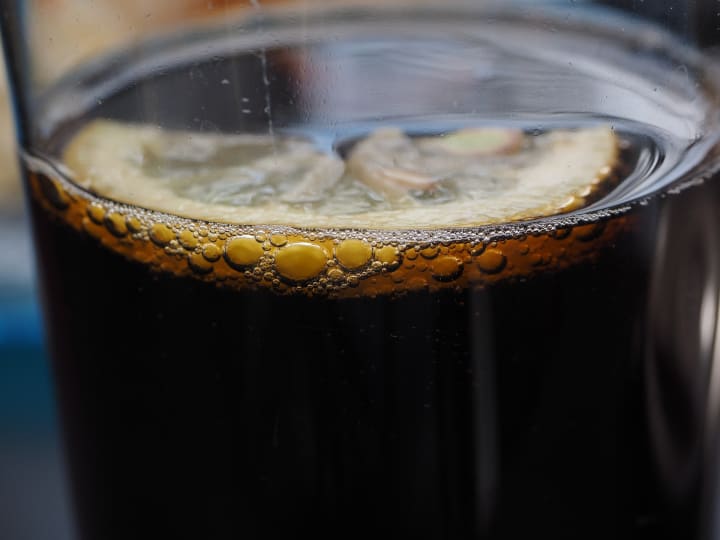08 Home Remedies for Acidity, Bloating, and Gas
Top Indian home remedies

Common gastrointestinal issues including gas, bloating, and acidity can cause pain (gas pain), heartburn, chest discomfort, burping, difficulty swallowing (dysphagia), and pressure or fullness in the abdomen.
Acidity is a situation in which the gastric glands produce more acid than is necessary for the digestion of food. As a result, the majority of people routinely hiccup or burp without cause. The body's natural method of expelling any trapped air that was either consumed when eating, drinking, or smoking or that was produced as a byproduct of the digestive process is known as passing gas or flatulence.
An average person usually passes gas 13 to 21 times per day! Gas, however, can be extremely painful if it becomes trapped inside. Sometimes, this discomfort mimics the signs of heart disease, gallstones, or appendicitis. One may feel as though their stomach is full or tight owing to gas. Bloating is the name for this ailment. And a number of factors, like consuming carbonated beverages, overeating, and constipation, can contribute to this.
To treat these stomach issues, one could be tempted to take an antacid. However, we advise that you first seek the advice of the top gastroenterologist in your area and experiment with the most potent Indian home remedies for gas, bloating, and acidity.
With the use of home remedies, the severity of the majority of gastrointestinal issues, such as gas, bloating, and acidity, can be reduced. Here are the top 10 Indian home remedies for treating the same conditions, which can help with symptoms including heartburn, burping, pressure in the stomach, and chest discomfort.
Every House should have Home Doctor Book for more home remedies
1. After meals, get moving.
It is preferable to move about rather than sit still after eating. It has been noted that sitting down right after eating might lead to gas buildup, which in turn causes pain and discomfort. As a result, you can get up and take a walk around the house or office if you are feeling gassy. This will lessen the discomfort, and there's a chance that the wind will blow through and relax the body's digestive system muscles.
2. Examine Indian home remedies for bloating and gas
Keep gastrointestinal discomfort at bay by drinking enough water each day and experimenting with a few Indian home remedies for gas and bloating, such as cloves, fresh fruit juices, buttermilk, cumin water, chamomile tea, and other tonics. Additionally, drinking water 30 minutes before meals might reduce post-meal bloating. Water helps the body transfer food from the esophagus to the gut, and drinking water, particularly lukewarm water, can ease the pain and discomfort associated with gas, cramps, and bloating.
3. Steer clear of carbonated drinks
Carbon dioxide (CO2), which is a gas that forms when carbonated beverages pass through our stomachs, is known to be present in these beverages. We unintentionally pass on tiny amounts of gas when we drink aerated beverages that occasionally our bodies are unable to digest.

As a result, immediately following the use of fizzy drinks, we experience severe aches and stomach bloating. Additionally, you'll be surprised to learn that carbonated beverages erode teeth and irritate the linings of the esophagus and stomach, which causes discomfort and bloating. Therefore, it is preferable to minimize or refrain from consuming carbonated beverages.
4. Consume food slowly and thoroughly.
The best way to ensure that less air is absorbed while eating is to eat slowly, especially during all meals. In addition to ensuring better digestion, chewing food thoroughly also helps to reduce gas and bloating in the stomach. Burps, gas production, and bloating are reduced when food is consumed slowly and thoroughly. A well-balanced meal will result in far less gas development than eating simply proteins or salads, which is another crucial piece of advice.
5. Steer clear of artificial sweeteners
Especially if you have diabetes, did you know that sorbitol, an artificial sweetener added to most foods, can induce gas and bloat? Fructose, which is naturally present in most of the fruits and juices we ingest, is the same way. Fructose and sorbitol can be exceedingly difficult for some people to digest, which can result in bloating, chest pain, and burping. To avoid gas and bloating, try to refrain from sweetening tea and coffee with artificial sweeteners.
6. Avoid eating legumes and beans at night.
The Indian diet includes a lot of beans and other legumes. However, they result in gas and bloating. Therefore, it is suggested to carefully soak them in water for a few hours before cooking. This somewhat lessens stomach development and bloating. Additionally, it is suggested that you eat them with rice or chapatis throughout the day and refrain from eating or serving them at night. Consuming beans and other legumes late at night may result in gas production and unpleasant symptoms.
7. Determine your lactose intolerance.
Dairy products are essential to Indian cuisine. The fact that lactose intolerance results in belching, burping, flatulence, stomach pain, and stomach disturbance is not widely known. Milk and all other dairy products, including yogurt, cheese, and buttermilk, contain the sugar lactose. According to a study, 75% of people will develop lactose intolerance as they become older. Therefore, it is crucial to check for lactose intolerance or have a test done. Avoid dairy products if you have lactose intolerance because they might cause bloating and gas.
8. Refrain from consuming beer and tobacco

This message is for you if you frequently have gastroenteritis and other gastrointestinal issues. Cigarettes and beer both raise your risk of experiencing digestive and stomach disorders. Beer contains carbon dioxide, which worsens stomach pain to the point where you may want to see a doctor. Smoking has been linked to the development of liver disorders, gas production, and bloating. Therefore, avoid these two to avoid gas and bloating and have a hassle-free evening or night.
Note:
Each of these natural or at-home therapies works well to lessen the intensity of acidity, gas, and bloating. However, if you have been feeling excessively gassy or bloated for longer than a week, we always advise that you see a doctor. Excessive flatulence or bloating may be a sign of a serious problem or disease, such as PCOD, endometriosis, a hernia, etc., or it may be an allergic reaction to any item consumed. Therefore, seeking medical advice as soon as possible is recommended.
Fast-Acting Medicine for Gas and Bloating
- Consume digestive enzymes.
Taking digestive enzymes may occasionally assist to lessen gas, flatulence, and pain in the stomach. Alpha-galactosidase, an enzyme found in digestive enzymes, creates galactooligosaccharides (GOS). Complex meals including root vegetables, proteins, and carbs can be broken down with the aid of GOS.
It is possible to have burping, gas, and bloating when the body produces fewer digestive secretions. Consequently, giving the body the necessary digestive enzymes aids in lowering gas generation and tummy discomfort.
- Use OTC (over-the-counter) antacids to ease pain
Calcium carbonates, or antacids, are very effective at reducing acid secretion and regulating gas production. When used with simethicone, calcium carbonate can considerably reduce gas and bloating. So, to fast feel better if you are feeling gassy and bloated, take a scoop of antacids.
It is best to stay away from these meals, though. However, if you've already eaten them, make sure you have antacids and digestives on hand to ease any pain or discomfort in your stomach.
However, before attempting OTC drugs or digestive enzymes, make sure you speak with the best gastroenterologist.

Acidity, Gas, and Bloating: Frequently Asked Questions
1. What signs and symptoms of gas and bloating are there?
The signs include a bloated stomach, frequent burping, and flatulence (the passing of gas). If you are exhibiting these signs, trapped gas is unquestionably the cause. Call to speak with a qualified gastroenterologist in your area who can diagnose and treat you.
2. How are stress and gas formation related?
The gut and the brain are intertwined. Stress can therefore increase your risk of having stomach issues. When under stress, it may be harder to swallow food and more air may be ingested while smoking, drinking, and eating. Burping, bloating, and gassing can all be aggravated by stress.
3. Does milk give you gas?
Dairy can definitely give lactose-intolerant folks flatulence. These individuals may get diarrhea after consuming dairy products because they are unable to metabolize the sugar or lactose found in milk.
Takeaway
It's usual to pass gas. But often passing gas can indicate an underlying stomach issue like GERD. Additionally, excessive gas generation and bloating can be quite upsetting and unpleasant. To avoid experiencing pain and discomfort, try the natural home remedies for acidity, bloating, and gas described above. Do not wait to seek medical counsel from a gastroenterologist if flatulence and bloating persist despite the use of appropriate therapies.
Home Doctor-More Home Remedies
About the Creator
Shiran Kapila Jayawardhane
I am a blogger, writer, & freelancer, love writing, & preferred to write in education, science, tech: & health. And you can find me on Medium.com & quora.com.
I hope you may enjoy my articles
Best Regards,






Comments
There are no comments for this story
Be the first to respond and start the conversation.